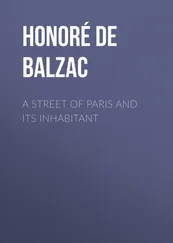Henry Edwards - Old and New Paris - Its History, Its People, and Its Places, v. 2
Здесь есть возможность читать онлайн «Henry Edwards - Old and New Paris - Its History, Its People, and Its Places, v. 2» — ознакомительный отрывок электронной книги совершенно бесплатно, а после прочтения отрывка купить полную версию. В некоторых случаях можно слушать аудио, скачать через торрент в формате fb2 и присутствует краткое содержание. Жанр: foreign_antique, foreign_prose, Путешествия и география, на английском языке. Описание произведения, (предисловие) а так же отзывы посетителей доступны на портале библиотеки ЛибКат.
- Название:Old and New Paris: Its History, Its People, and Its Places, v. 2
- Автор:
- Жанр:
- Год:неизвестен
- ISBN:нет данных
- Рейтинг книги:4 / 5. Голосов: 1
-
Избранное:Добавить в избранное
- Отзывы:
-
Ваша оценка:
- 80
- 1
- 2
- 3
- 4
- 5
Old and New Paris: Its History, Its People, and Its Places, v. 2: краткое содержание, описание и аннотация
Предлагаем к чтению аннотацию, описание, краткое содержание или предисловие (зависит от того, что написал сам автор книги «Old and New Paris: Its History, Its People, and Its Places, v. 2»). Если вы не нашли необходимую информацию о книге — напишите в комментариях, мы постараемся отыскать её.
Old and New Paris: Its History, Its People, and Its Places, v. 2 — читать онлайн ознакомительный отрывок
Ниже представлен текст книги, разбитый по страницам. Система сохранения места последней прочитанной страницы, позволяет с удобством читать онлайн бесплатно книгу «Old and New Paris: Its History, Its People, and Its Places, v. 2», без необходимости каждый раз заново искать на чём Вы остановились. Поставьте закладку, и сможете в любой момент перейти на страницу, на которой закончили чтение.
Интервал:
Закладка:
The performances of the Paris circus-woman too closely resemble those of her sister in London to need description. The characters, however, of the two equestrians are not identical, and that of the écuyère can scarcely be represented better than in the words of a vivacious French writer, who says: “You can easily imagine what must be, not the future (alas! has she one?), but the present of this poor, intrepid, careless creature. After being exposed twenty times a day to the risk of breaking her jaw, she has hardly earned her food; and every morning she has to wash, stretch, and otherwise renovate the costume in which she is to dazzle her spectators at night… Some of these circus-women marry a Hercules or a professional fool; at the third or fourth child Mme. Hercules or Mme. Fool takes her mare by the head, kisses her on the nose, and bids a weeping adieu to the brave, affectionate beast, the only friend who has never beaten her. It is done: the whole family – husband, wife and children, go forth to try their luck as strolling players. Their theatre is the fair in summer and the street in winter. Hercules will lift, at arm’s length, enormous weights, and the children will form the living column, or dance on the rope, while the mother, as short-skirted as ever, but now plump enough to burst her vestments, will contribute some kind of music or exhort the outside public to enter the show.” She frequently fills up her intervals with fortune-telling; informs young women whether they will be married the same year, and whether the visionary swain is fair or dark; lets married men know if their wives are faithful, and wives if their husbands are engaged in amours. Nurse-maids learn from her that in the mounted gendarmerie or the cuirassiers there is a hero of six-feet-six, only awaiting an opportunity of declaring his passion.
This, however, is a sketch of the more fortunate of the strolling circus artists. Occasionally the husband breaks a limb, or kills himself in attempting some daring feat; in that case his family is often reduced to beggary or something worse.
CHAPTER IV.
THE DOMESTIC
IT has already been seen that domestics have at different periods been employed in Paris as spies. – According to Léon Gozlan, writing of his own period, “the police of Paris is almost entirely occupied with the misdeeds of domestics. Nearly all domestics are thieves or spies, and they get more so as they grow older. The most honest amongst them steals at least ten sous a day from his master.” It is to be hoped that if they steal in this amusingly regular fashion, they at least observe the kind of morality which has been noticed in some of the inferior state officials of Russia. One of these complained that a colleague of his was dishonest and helped himself to things which belonged to the State. “But you do the same thing yourself,” suggested a friend. “True,” was the reply; “but this fellow steals too much for his place.”
Let us, however, turning from drollery and from Léon Gozlan – who can hardly have been quite serious – glance at the household servant of Paris as a factor in the Parisian community. The French domestic, whether valet, lackey, or lady’s-maid, is more important and influential than the domestic of England. It is true that occasionally in an English house some servant practically rules the family, and that the relationship between employer and employed becomes so reversed that the mistress is afraid to ring her drawing-room bell. As a rule, however, in England the domestic is a nonentity. The man-servant or maid-servant who waits at an English table is absolutely ignored, and is not even supposed to understand the conversation which accompanies dinner, nor to laugh at jokes indulged in by the host or his guests. An English servant nowadays who shook with laughter at what he overheard in the dining-room, like black Sambo at Mr. Sedley’s, would be cautioned if not cashiered. The French domestic is a personage and a power. The “trade of lackey,” according to Fabrice, in “Gil Blas,” requires a man of superior intellect. The true lackey “does not go through his duties like a ninny; he enters a house to command rather than to serve. He begins by studying his master: he notes his defects, gains his confidence, and ultimately leads him by the nose… If a master has vices, the superior genius who waits upon him flatters them, and often indeed turns them to his own advantage.” Awaiting the day when he shall himself be great, the liveried aspirant takes the name of his master when he is with other lackeys, adopts his manners and apes his gestures; he carries a gold watch and wears lace; he is impertinent and foppish. “Bon chien se forme sur maître,” says the French proverb, and the Parisian domestic religiously takes after his master, even though, as far as intrinsic resemblance goes, he might simply be an ape in his master’s clothes.
That vanity characterises French servants is undeniable. Against the charge of cupidity, however, which is brought against them, even by French writers, must be set off one or two famous instances in which valets have supported their ruined masters for ten or twenty years out of their own savings. Mercier, all the same, represents the Paris domestic as hardly less a rogue than does Léon Gozlan. “Out of ten servants,” he assures us, “four are thieves.” Another native writer, while not undertaking to combat this proposition, finds a defence for the accused domestics. “If they are thus, who,” he asks, “has perverted them? Who, either by example or complicity, has made them thieves and spies? Every year is committed, to the prejudice of the country and of agriculture, an abominable crime, namely, the stealing of individuals, strong and useful, snatched at once from the sunlight and from simplicity of manners, to be degraded, and sullied with a livery; to have imposed upon them their master’s vices and follies, and to be turned into idlers and good-for-nothings, flatterers and procurers.”
Paul Louis Courier looked forward to the time when domestic servitude would be replaced by household service rendered freely, as if in virtue of a contract between man and man; and in Paris, as in other capitals, this state of things seems to be fast approaching, not as the result of any benignant feeling on the part of the rich towards the poor, but because, with the spread of education and of democratic ideas, a disinclination to remain constantly at the orders of another person is gradually extending. Already servants demand a greater number of holidays than in ancient times; and there are many who, like the London charwoman and the “laundress” of the Inns of Court, are ready to give their services during the day-time, and even until a late hour in the evening, while reserving to themselves the right of returning, after their labours, to their own domicile.
There is much to be said, no doubt, on the other side. If there are masters and mistresses without consideration for their servants, there are servants who, having kind masters and mistresses, show themselves without gratitude. But we are dealing specially with French servants, who, apart from all question of good conduct or bad, enjoy certain privileges not formally recognised as lawfully belonging to servants in England. The bonne, for instance, or the cook, who goes to market to purchase provisions considers herself entitled to “make the handle of the basket dance” – “fair danser l’anse du panier” – to appropriate, that is to say, a portion of the things she has bought, or of the money she has nominally spent, to her own uses. In like manner the house-porter, or “concierge,” takes for himself, as a matter of course, so many logs out of every basket of wood ordered by the different tenants, of whom there are often some half-dozen in the same house. In France, as in other countries, a valet will sometimes wear his master’s clothes, and the Parisian lady’s-maid asserts and enforces, more perhaps than in any other capital, her claims to her mistress’s cast-off apparel.
Читать дальшеИнтервал:
Закладка:
Похожие книги на «Old and New Paris: Its History, Its People, and Its Places, v. 2»
Представляем Вашему вниманию похожие книги на «Old and New Paris: Its History, Its People, and Its Places, v. 2» списком для выбора. Мы отобрали схожую по названию и смыслу литературу в надежде предоставить читателям больше вариантов отыскать новые, интересные, ещё непрочитанные произведения.
Обсуждение, отзывы о книге «Old and New Paris: Its History, Its People, and Its Places, v. 2» и просто собственные мнения читателей. Оставьте ваши комментарии, напишите, что Вы думаете о произведении, его смысле или главных героях. Укажите что конкретно понравилось, а что нет, и почему Вы так считаете.












